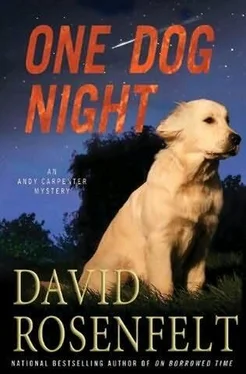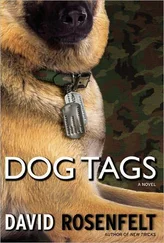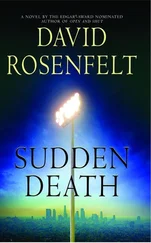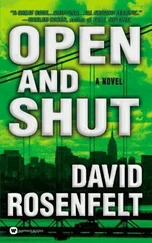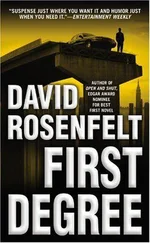He went into his office, locked the door, and watched as his worst fears were realized. There he was, in the Amsterdam hotel, having sex with a prostitute and ingesting cocaine. He was looking at the end of his career, his marriage, and life as he knew it.
He called Fowler, who answered the phone with a calm, “Hello, Senator. Thanks for calling.”
“You stinking son of a bitch.”
“I see no reason for name-calling, Senator. For instance, I didn’t address you as a cheating, cocaine-snorting pervert, even though the evidence certainly would support such a characterization.”
“What do you want?” Ryan asked.
“I’ll tell you at breakfast tomorrow. Believe me, it won’t be nearly as bad as you think. By next week this can all be behind you.”
* * *
They met at the restaurant in the Madison Hotel, on Fifteenth Street Northwest, a perfectly normal spot for a senator to be having breakfast. Fowler was already there when Ryan arrived, which was to be expected considering their relative status.
An outside observer would never have thought there was anything wrong, or that Ryan was not in charge of the meeting. But of course to Ryan something was very wrong, and he most definitely was not in charge.
Fowler tried to make small talk at first but Ryan was having none of it. “Just tell me what you want,” he said.
“It’s not what I want, Senator. But the people I represent do have a request.”
“Who are those people?”
Fowler laughed. “I’m afraid that’s privileged, Senator. Very, very privileged.”
“I’m waiting,” Ryan said.
“You have a bill coming out of your committee this week. I believe it is number D427967, regulating certain mining activities. It is not a terribly significant piece of legislation, and is expected to be passed easily by both houses and signed by the President. No controversy at all, which in this political climate is remarkable, don’t you think?”
Ryan obviously knew of the legislation, and knew that Fowler was characterizing its certain passage accurately. “What about it?”
“Certain amendments, also enjoying widespread support, will be added in the next two days. There is an additional amendment that you will add in your capacity as ranking minority member. It will seem insignificant, and in fact is of little importance, and should sail through by acclamation.”
“And what if I don’t?”
Fowler shook his head, as if saddened. “Senator, please… don’t embarrass yourself.”
“Then what if I do as you ask?”
“When you do,” Fowler said, leaving no doubt that “if” was not the correct word for this situation, “then the content of the video will never be disseminated, and you will not be called upon in this manner again. You have my word; I work for honorable people.”
“What is the amendment?”
Fowler took an envelope out of his pocket and handed it to him. “It’s in here.”
Ryan did not want to wait to see what was in there, so he opened the envelope and took out the piece of paper. It was four paragraphs of legislative language, so he read it closely and carefully. Then he turned to Fowler.
“Done,” he said.
Sam Willis has spent three days online learning as much as he can about the victims.
In my experience, three days is enough time for Sam to fully chronicle every event that has happened in the history of the world, with special attention to New Jersey.
But as research projects go, this one is proving very difficult. That’s because for the most part the people who died lived on the fringe of society, many not in the workforce, and had done little to document their impact on the world.
We know how they died, but the challenge we face is finding out how they lived.
“Twenty-six people,” Sam says. “Twelve men, eight women, six kids, four of them boys. One survivor, a twelve-year-old boy who jumped out a window. He lost three family members that day.”
The images that my mind conjures about that fire are horrible, and obviously the jury will feel the same way. They will also want to be able to assign blame, to at least partially right the wrong. And Noah will be the one sitting in the crosshairs.
I look quickly through the information that Sam has assembled, long enough to know it won’t help us, and I say, “This isn’t enough. I’ve got to know more about them.”
“There’s very little out there about these people, Andy. We’re not talking about CEOs, you know? Even the ones that I could find out where they were employed, some of them had given fake documentation.”
“What about other family members, friends, friends of friends? I need to know these people, Sam, so I can know if they could have been the targets.”
“I’m trying, Andy, but so far it’s not there. I don’t even have three names.”
“What do you mean?”
“Three of the victims were never identified. No one came forward to say who they were, and the cops assumed they were transients. They figured the targets were the guys in 1-C, and they were probably right.”
I agree with Sam; the police probably were correct about that. But once again we butt up against the reality of courtroom life; it doesn’t matter if it’s true. It only matters if the jury buys it.
“We’re going to need to get out in the field for this, Andy. Pound the pavement. Shoe-leather time.”
“Shoe-leather time?”
“You know what I mean.”
“Yes, I do, and you’re probably right. But that’s why we have Laurie, and it’s especially why we have Marcus. They go out in the field and get information.”
“You don’t think I can do that?” he asks.
“Absolutely,” I lie. The image of Sam loose on the streets with his gun is not a pretty one. “But your special gift is to get information by working a computer keyboard. Fingertip time.”
I finally get Sam to leave, and I call Pete. He’s not in, so I try him on his cell. When he answers, I can hear street noises in the background.
“Hey, Pete, what’s going on?”
“What’s going on? You calling to chitchat? I’m out arresting lowlifes and criminals, so you can put them back on the street.”
“Always happy to help. I’ve got a question about the Galloway case.”
A few moments of silence, and then, “Yeah?”
“Danny Butler knew all the facts behind the arson, stuff that forensics confirmed.”
“So?”
“So I want to know if he could have gotten a look at the police documents, the murder book.” The investigatory record that detectives keep when investigating a homicide is called the “murder book.”
“You want to know if a slimeball like Danny Butler saw my murder book?” Pete asks, obviously insulted by the question.
“Yes.”
“Definitely. We posted it on scumbag.com so Danny and his friends could familiarize themselves with it.”
“So it’s not possible?” I ask, knowing his answer but still needing to hear it.
“No, it’s not possible. For the last two years that book has been in my wall safe at home. It’s been bedtime reading. You think Butler broke into my house? Or you think he read it, and then waited two years to talk about it?”
“I don’t suppose you have any idea how Butler found out the details?”
“Maybe your client told him.”
“He didn’t,” I say. “I’m sure of it.”
“So prove it.”
“I’m trying to, but I’m six years late to the party. You’ve been there all this time, dancing and drinking the punch. I need a road map, or at least a place to start.”
Pete is quiet for a few moments, then seems to make a decision. “Start with ‘Double J.’”
“Who is ‘Double J,’ and why should I talk to him? Or her.”
Читать дальше
